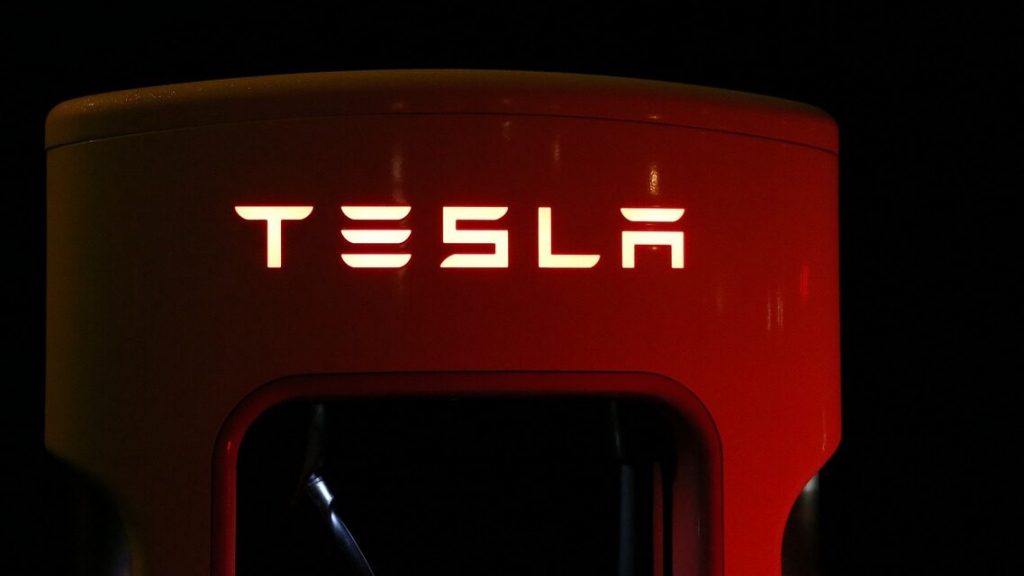Tesla Recalls Over 350,000 Vehicles Due To Serious Safety Flaw
Tesla issued a recall for approximately 363,000 vehicles due to detecting that the Full Self-Driving feature could potentially cause the vehicles to violate traffic laws.
This article is more than 2 years old

Tesla’s self-driving feature is making headlines again, this time for a serious safety flaw affecting nearly 363,000 vehicles. Another Tesla recall was issued this week because of a malfunction in the driver assist software. According to analysis by the National Highway Traffic Safety Administration (NHTSA), “The FSD Beta system may allow the vehicle to act unsafe around intersections, such as traveling straight through an intersection while in a turn-only lane, entering a stop sign-controlled intersection without coming to a complete stop, or proceeding into an intersection during a steady yellow traffic signal without due caution.”
Full self-driving (FSD) is a bit of a misnomer in that a human driver is still required to take control when needed. The vehicle is able to navigate roads with steering, braking, and acceleration. But as the NHTSA said about the Tesla recall, the software allows the vehicle to violate traffic laws at intersections before drivers are able to take control.
The NHTSA notice said that the automaker will attempt to fix the FSD flaw through an over-the-air software update. Because safety recalls usually require car owners to return their vehicle to the dealership for a repair, it brings to question whether calling it a “Tesla recall” is accurate. Tesla CEO Elon Musk tweeted, “The word ‘recall’ for an over-the-air software update is anachronistic and just flat wrong!”
Musk refrained from offering additional comments on the nature or scope of the problem with the $15,000 FSD feature. NHTSA defended its decision to call the issue a Tesla recall, saying that it’s the manufacturer’s responsibility to initiate a recall for any repair that poses an unreasonable risk to safety. The organization said that includes software updates.
NHTSA went on to say that the Tesla recall problem is present in all electric vehicles with the current version of FSD software. It is available on all four Tesla models, including the Model S, Model X, Model 3, and Model Y. The federal agency promised to monitor the situation and evaluate the remedies for their effectiveness.
The Tesla recall is in response to at least 18 identified reports of incidents that occurred between May 8, 2019, and September 12, 2022. Each is assumed to be related to the faulty FSD software. NHTSA said Tesla is unaware of any injuries or deaths caused in those incidents.
Last year, NHTSA stated at least 273 crashes where Tesla driver assist systems were involved. In addition to the FSD software, its precursor, Tesla Autopilot was involved. Currently, there are no specific regulations in place for driver-assist systems, which means that automakers can decide how to market the systems themselves.
Tesla has released vehicle safety reports that say Autopilot provides a lower crash rate per mile than unassisted driving. The company also says that drivers are warned that they must remain alert and ready to take full control of their vehicles immediately. But a 2021 study by MIT found that Tesla drivers were less alert while using Autopilot than when driving without the system.
In addition to commenting about the NHTSA’s decision to label the software problem a Tesla recall, Musk said FSD is safe. “Our published data shows that improvement in safety,” he said. “It’s very clear. So we would not have released the FSD Beta if the safety statistics were not excellent.”
Musk also continues to predict that the company will soon build a truly self-driving car, but the company keeps retracting its self-imposed deadlines for making it happen. He also says that the price for the feature will continue to climb from its current $15,000 cost. If the recent Tesla recall is any indication, the automaker has a lot of work to do before reaching that goal.



